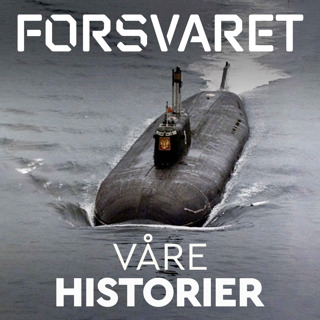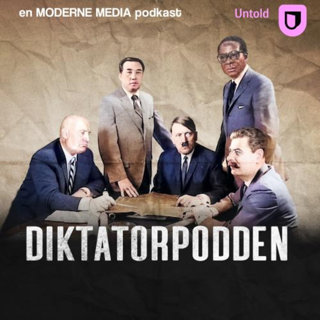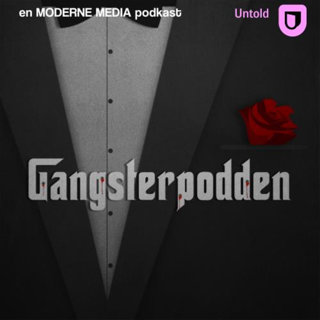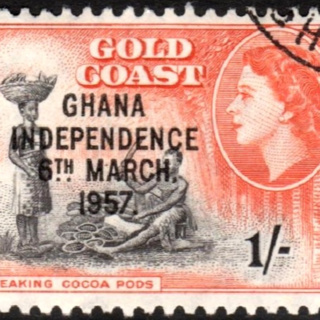
242. A wind of change driving the retreat from empire
‘The wind of change’ was the other famous phrase of Harold Macmillan’s, along with ‘You’ve never had it so good’. It came in a speech in which he talked about how a movement had grown up in many countries, and particularly in Asia, for nations previously dependent on others to break free and become self-governing. Now, he told an audience in South Africa, a wind of change was blowing through Africa as similar, entirely legitimate nationalist aspirations were spreading from country to country in the continent. And it was. Ghana was the first sub-Saharan African colony to win independence, but it would be followed by many others in relatively quick succession. Some went easily. Others went after ugly incidents, notably in Kenya, where bloody fighting led to the use of torture and killings on both sides before the country achieved its freedom from the British Empire. And then there was South Africa and Southern Rhodesia (today’s Zimbabwe) which clung on for several more decades to white minority rule. They too got away from imperial rule, but there was no sense of their granting freedom to a majority – only to a tiny, elite minority. An elite which, during his childhood, even included a man whose name has become a household word around the world: Elon Musk. Illustration: A stamp with Queen Elizabeth II’s head from the British colony of Gold Coast, overprinted with Ghana Independence, marking the nation’s transition to self-government. Public DomainMusic: Bach Partita #2c by J Bu licensed under an Attribution-NonCommercial-No Derivatives (aka Music Sharing) 3.0 International License
4 Mai 14min
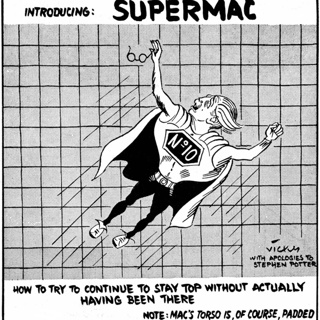
241. Supermac: you've never had it so good
Macmillan overcame the terrible legacy of the Suez catastrophe and, running an economy focused on growth to fund increasing living standards, giving him the opportunity to annouce that people had never had it so good. That reflect both a genuine concern with eliminating poverty and as an effective electoral strategy, pulled off the trick by increasing the Conservative majority in its third consecutive general election win in 1959.Meanwhile, in the Labour Party, in opposition, the left-right split was causing serious dissension, with Nye Bevan leading the left and winning great support for his brilliance and his charisma, but a lot of criticism too for the damage done by views that were sometimes extremist. His group of troublemakers included the young and ambitious Harold Wilson. He, however, when he realised that aligning with the left wing was getting him nowhere, drifted rightwards, ending up by taking Bevan’s seat on the Labour Shadow Cabinet instead of backing his resignation from it. He then supported the rightwinger Gaitskell’s campaign to become Labour leader against Bevan. Macmillan found himself facing Gaitskell and Wilson in opposition to him as his continued dash for economic growth, alongside fear or inflation and pressure on the currency, led to his alternating between periods of economic relaxation and periods of retrenchment. Gaitskell and Wilson denounced ‘boom and bust’ economics.Things were beginning to turn nasty for Macmillan. But we haven’t seen how nasty yet.Illustration: Supermac as seen by Vicky Public Domain.Music: Bach Partita #2c by J Bu licensed under an Attribution-NonCommercial-No Derivatives (aka Music Sharing) 3.0 International License
27 Apr 14min
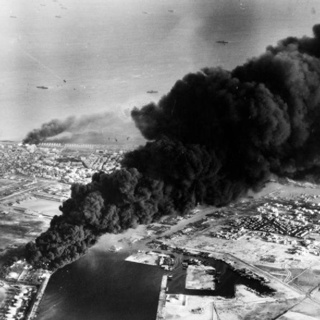
240. Suez: nail in the imperial coffin
Anthony Eden started his premiership well, chalking up a general election win and the lowest level of unemployment Britain has seen at any time since the Second World War. Little else went well, however. His Foreign Secretary, Harold Macmillan made a statement to the House of Commons exonerating Kim Philby from suspicion of being a Soviet spy. That was a statement he would live to regret.Far worse for Eden was what happened in Egypt. The nationalist Egyptian President Gamel Abdel Nasser nationalised the Suez Canal in 1956. Despite Eden’s lack of enthusiasm for European integration and his far greater commitment to the Commonwealth, and to the so-called special relationship between the UK and the United States, he decided to respond without consulting the US and in concert with France, one of those European powers he was so unenthusiastic on getting close to. They in turn colluded with Israel to invade the Egyptian territory of Sinai, after which they would react with horror, call on both sides to cease firing, and when that didn’t happen, send in troops themselves.Unfortunately, the world reacted with widespread anger at the actions of the Israeli-French-British coalition. The US, indeed, put huge pressure on Britain by threatening to sell British bonds, which would have massively damaged the British currency. They later blocked oil supplies to Britain.The result was that though the military action only got started on 29 October 1956, when Israel went into the Sinai, Britain called a ceasefire on 7 November. That angered the French, who have behaved with little confidence in the British or American military ever since. It also led to the ultimate defeat of the coalition, with the British government having to announce an unconditional withdrawal of its forces on 3 December 1956.Eden was made the scapegoat for the debacle. He resigned in January 1957, after less than two years in post. Many expected the succession to go to Rab Butler, who’d deputised for Eden while the latter was away recovering from a collapse in his health at the height of the crisis, but Harold Macmillan proved much too wily for him, outmanoeuvring him and taking the top position himself.We'll be getting to know Macmillan era next week.Illustration: Smoke rises from oil tanks beside the Suez Canal hit during the initial Anglo-French assault on Port Said, 5 November 1956. Public DomainMusic: Bach Partita #2c by J Bu licensed under an Attribution-NonCommercial-No Derivatives (aka Music Sharing) 3.0 International License
20 Apr 14min
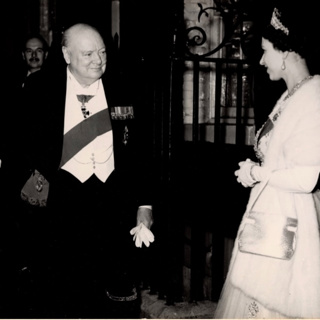
239. Winston back, Winston out
The old man was back. The Conservatives won the 1951 election and Winston Churchill returned to Downing Street. And he really was an old man – nearly 77 when he took office. To many, he it seemed increasingly clear that he was unfit for office, but he wouldn’t leave, clinging on, in the end, for three and a half years. He did get various things done. He presided over the ending of rationing. He allowed the British secret service to work with the Americans to bring down the democratically elected government in Iran, to protect British oil interests, a move whose consequences we’re still suffering from today. And he also did all he could to lessen the risk of the world wiping itself out in a war using Hydrogen bombs, far more destructive still than the bombs that had actually been used against Japan. He appointed a Home Secretary, David Maxwell Fyfe, who would use the full power of the law against gay sex to make life miserable for a lot of gay men. His most notable victim was Alan Turing, an outstanding scientist of his generation, persecuted, subjected to chemical castration, and driven to an early death, it seems pretty clear, by suicide.Fyfe also believed strongly in the death penalty, even though this was a time when a couple of particularly striking miscarriages of justice came to light, miscarriages that led to the execution of innocent men. It would take decades to clear their names. But the death penalty would not be abolished at that time.Churchill’s attempt to do something about the Hydrogen bomb was his last great initiative in office, his last international action, his last pretext for putting off resignation. It, however, failed. Even so, he hung on another eight months, with no obvious excuse for not going. Still, if he had no excuse, it's clear today that he may well have had an understandable reason, other than the natural instinct of men in power to cling on to it as long as possible.He may simply have had no confidence that his designated successor, Anthony Eden, was up to the job. Something we’ll be checking up on next week.Illustration: Winston Churchill seeing Queen Elizabeth II to her car after dinner at Downing Street the day before he left office. Public Domain.Music: Bach Partita #2c by J Bu licensed under an Attribution-NonCommercial-No Derivatives (aka Music Sharing) 3.0 International License
13 Apr 14min
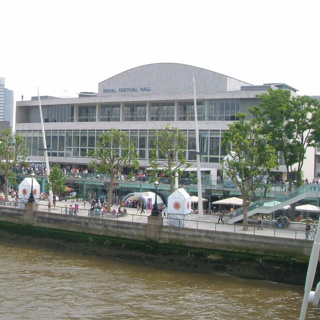
238. Decline to defeat
Circumstances seemed unfavourable for a Labour victory in a 1950 election but, when it was held, Attlee managed to lead his party to the second win in its history. It took a majority of the popular vote, and even a majority of parliamentary seats, though way down from its previous landslide to a mere five.With that small majority, it was poorly placed to deal with the continuing financial difficulties of the country. These were made worse by involvement in the Korean War, which meant rearming. The funds for the war had to be found somewhere, and the Chancellor of the Exchequer, a rising star of the Party, Hugh Gaitskell, decided that had to come in part from raiding the National Health Service and the Social Insurance Fund.In disgust, the architect of the health service, Nye Bevan, resigned from the government. With him went another young rising figure, Harold Wilson, who had become the youngest cabinet minister in Britain in the whole of the twentieth century. At that stage he stood with the left and with Bevan, though later he would turn on his mentor, taking a seat in the Shadow Cabinet when Labour was back in Opposition, a seat vacated precisely by another resignation on principle by Bevan.There were difficulties internationally too, with the Mossadegh government in Iran set to nationalise British oil industries there, and nationalist forces in Egypt putting pressure on the British garrison guarding the Suez Canal. Attlee’s friend and loyal supporter, the long-time Foreign Secretary Ernest Bevin had died in April 1951, and his successor Herbert Morrison wasn’t up to the job, adding these foreign crises to the burden on Attlee.With Bevan’s left-wing group organising against him and making his parliamentary majority look decidedly fragile, the aging and tired Attlee called another election. Held on 28 October 1951, it saw Labour at last lose its majority and the Conservatives win one.Attlee was out. Churchill was back.Illustration: The Royal Festival Hall in London, souvenir of the 1951 Festival of Britain, itself marking the centenary of the Great Exhibition in Victorian times. Photo by a Wikipedia contributor. Public Domain.Music: Bach Partita #2c by J Bu licensed under an Attribution-NonCommercial-No Derivatives (aka Music Sharing) 3.0 International License
6 Apr 14min
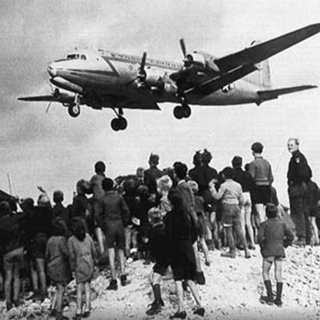
237. Citizen socialism at home, resisting the Soviets abroad
What Attlee’s government had shown was that, though it regarded itself as Socialist, it was a very distinctive kind of Socialism and heavily influenced by Liberal thinking. Where a more Marxist Socialist would take a class-based approach to politics, for Attlee the central figure was the Citizen and Citizens inhabited every class. Hence his universalist approach to social services, available to anyone who needed them irrespective of status. At the same time, he would not forbid those with the means to buy themselves other services, if they chose, from the private sector.His opposition to a harder-line brand of socialism had its corollary in his deep suspicion of Soviet behaviour internationally. His government invested whatever it needed to develop an independent British nuclear deterrent. It also became a founder member of NATO, and it also committed British forces to two major responses to Soviet aggressive moves: the Berlin airlift against the Soviet blockade on West Berlin, and the war in Korea, under the UN flag, against a Northern invasion of the South.Unfortunately, these military commitments, added on top of the need to control the remaining Empire, only added to the financial burdens on the government. That had led to a regime of austerity at home. In turn, the generated a widespread atmosphere of dissatisfaction with the government.As we’ll see, that wasn’t helpful in an election year.Illustration: A plane in the Berlin Airlift flying above children watching it come into Tempelhof Airport. NATO photographMusic: Bach Partita #2c by J Bu licensed under an Attribution-NonCommercial-No Derivatives (aka Music Sharing) 3.0 International License
30 Mar 14min
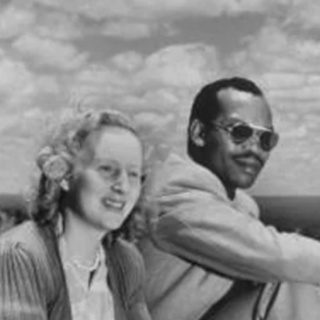
236. Greyness at home, decline abroad
Of the five ‘giant evils’ William Beveridge identified, the Attlee government set out to deal with want through social security, squalor through better housing, ignorance through more schooling and disease through the National Health Service. When it came to the fifth giant, idleness, the government’s tackeld unemployment by setting out to rebuild the British economy and, overall, that didn’t go too badly. Unemployment was kept to 2% of the workforce despite the return of two and a half million men to the employment market from the army, and a massive trade deficit was wiped out. But the price was a tough economy with rationing still in place and little in the way of luxury to make life more pleasurable. Survival had been made easier, but living was short of joy in a rather dour postwar Britain.Greyness at home was reflected in continuing decline abroad. This episode traces the loss of status and, indeed, of value of the pound, once the world’s reserve currency, now forced aside by the dollar. It also looks at the sad story of how Britain handled, or rather mishandled, its territory of Bechuanaland in Southern Africa, behaving shamefully towards its hereditary ruler Seretse Khama and his white wife Ruth Williams, to accommodate the growing racism of South Africa, source of the uranium Britain needed for its A-bomb.Things went no more smoothly in Palestine, where Britain simply abandoned its mandate, leaving Jews and Arabs to sort out their differences themselves, kicking off the long series of repeating wars that have poisoned the existence of Israel ever since. To cap the episode off, we talk about the start of the Malaya emergency, a counter-insurgency war as ugly and as strewn with atrocities as any other. It underlines the lesson that it isn’t government intentions that matter in such conflicts, it’s the nature of colonial war itself that makes it vile.Illustration: Seretse Khama, first President of Botswana, and the first First Lady, Ruth WilliamsMusic: Bach Partita #2c by J Bu licensed under an Attribution-NonCommercial-No Derivatives (aka Music Sharing) 3.0 International License
23 Mar 14min
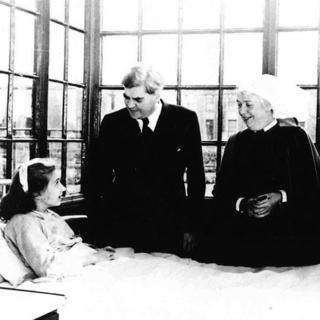
235. Clem against the Evil Giants
In the July 1945 general election, the British public offered Winston Churchill, as he put it himself, the ‘order of the boot’. A victorious war Prime Minister was kicked out. In his place, his deputy, the Labour leader Clem Attlee became Prime Minister.There was massive enthusiasm for the Attlee government in the working class, which extended to many soldiers. These were the people let down after the First World War when the promise of a ‘Land fit for Heroes’ was betrayed. They, and the government they elected, weren’t going to let that happen again.But does that mean that the Attlee government was socialist? In this episode, we study the social reforms it introduced and how they built on advances made by earlier radicals, many of whom were not socialist. In particular, the principal inspiration for those reforms came from William Beveridge, author of the Beveridge Report. Far from being a socialist, he was a Liberal, even briefly a Liberal MP.He'd identified five giant evils, want, ignorance, squalor, disease and idleness. This episode looks at the reforms designed to address the first four of these. The fifth, idleness, we’ll return to later.Illustration: Nye Bevan talking to a patient in Park Hospital, Trafford, Manchester, on the first day of the NHS, 5 July 1948. Image: Trafford Healthcare NHS/PA WireMusic: Bach Partita #2c by J Bu licensed under an Attribution-NonCommercial-No Derivatives (aka Music Sharing) 3.0 International License
16 Mar 14min

















